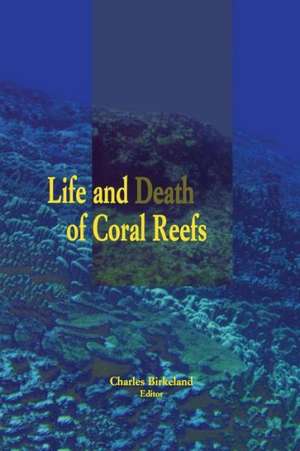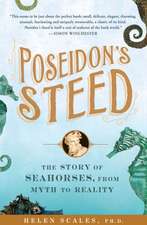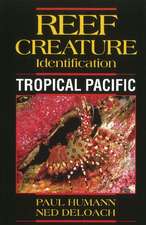Life and Death of Coral Reefs
Autor Charles Birkelanden Limba Engleză Paperback – 11 oct 2012
| Toate formatele și edițiile | Preț | Express |
|---|---|---|
| Paperback (1) | 1828.29 lei 6-8 săpt. | |
| Springer Us – 11 oct 2012 | 1828.29 lei 6-8 săpt. | |
| Hardback (1) | 1833.33 lei 6-8 săpt. | |
| Springer Us – 30 ian 1997 | 1833.33 lei 6-8 săpt. |
Preț: 1828.29 lei
Preț vechi: 2229.62 lei
-18% Nou
Puncte Express: 2742
Preț estimativ în valută:
349.83€ • 365.29$ • 288.89£
349.83€ • 365.29$ • 288.89£
Carte tipărită la comandă
Livrare economică 15-29 aprilie
Preluare comenzi: 021 569.72.76
Specificații
ISBN-13: 9781461377467
ISBN-10: 1461377463
Pagini: 560
Ilustrații: XIX, 536 p.
Dimensiuni: 155 x 235 x 29 mm
Greutate: 0.78 kg
Ediția:Softcover reprint of the original 1st ed. 1997
Editura: Springer Us
Colecția Springer
Locul publicării:New York, NY, United States
ISBN-10: 1461377463
Pagini: 560
Ilustrații: XIX, 536 p.
Dimensiuni: 155 x 235 x 29 mm
Greutate: 0.78 kg
Ediția:Softcover reprint of the original 1st ed. 1997
Editura: Springer Us
Colecția Springer
Locul publicării:New York, NY, United States
Public țintă
ResearchDescriere
Charles Birkeland Living coral is a thin veneer, measured in millimeters. Yet this thin film of living tissue has shaped the face of the Earth by creating limestone structures sometimes over 1,300 m thick from the surface down to its base on volcanic rock (Enewetak Atoll), or over 2,000 km long (Great Barrier Reef). About half the world's coastlines are in the tropics and about a third of the tropical coastlines are made of coral reef. Archipelagoes of hundreds of atolls such as the Marshalls, the Maldives, the Tuamotus, and most of the Carolines and Kiribati have been fonned by coral. In addition to enlarging high islands (such as the entire northern end of Guam) and extending and protecting coastlines, ancient biogenic reefs have fonned even larger areas on the present continents. Shallow living coral 2 reefs are estimated to presently cover over 600,000 km (Smith, 1978). Coral reefs are dynamic systems, producing limestone at the rate of 400-2,000 tons per hectare per year (Chave et aI. , 1972). The Great Barrier Reef dominates 2 230,000 km and has grown to this size in a geologically brief period of a few million years. Coral reefs influence the chemical balance of the world's oceans. Roughly half the calcium that enters the sea each year around the world, from the north to south poles, is taken up and temporarily bound into coral reefs (Smith, 1978).
Cuprins
Introduction. Reefs and reef limestones in earth history. Reefs as dynamic systems. Bioerosion and coral-reef growth: a dynamic balance. Interactions between corals and their symbiotic algae. Diseases of coral-reef organisims. Organic production and decomposition. Reproduction and recruitment in corals: critical links in the persistence of reefs. Invertebrate predators and grazers. Effects of reef fishes on coral and algae. Indirect interactions on the coral reefs. Geographic differences in ecological processes on coral reefs. Ecosystem Interactions in the tropical coastal seascape. Diversity and distribution of reef organisms. Disturbances to reefs in recent times. Traditional coral-reefs fisheries management. Resource use: conflicts and management solutions. Implications for resource management. References. Index.
Recenzii
What sets it apart is that the editor, Chuck Birkeland, has charged his distinguished group of seventeen contributors with examining the ebb and flow of life on reefs, and how this can be affected by people. - Reef Encounter, JUly 1997







